As a key component of the “Three-in-One” practical education initiative within the “Chief Engineer-Type” talents development system, the university’s “Soaring Across Globe” program provides undergraduates with an opportunity for a short-term overseas exchange during their studies to broaden international perspectives. In the summer of 2025, NPU coordinated the deployment of more than 2,000 undergraduates across 88 delegations for academic exchanges at prestigious universities, research institutions, and international organizations in nearly 30 countries and regions.
During transnational academic exchanges, students engaged in discussions with international research teams on cutting-edge scientific issues. Through visits to international organizations and participation in global issue workshops, they actively took part in simulated negotiations and policy-building exercises, gaining first-hand understanding of the complex mechanisms and real-world challenges of multilateral cooperation and global governance. In corporate research activities, students further developed critical thinking skills regarding the relationship between technological innovation and industrial application. During field studies at historical and cultural sites, they deeply observed and participated in local cultural practices. Within these diverse overseas learning environments, students continuously expanded their cognitive boundaries, demonstrating marked improvement in cross-cultural understanding and global competence.
The following section will provide a detailed overview of the summer 2025 “Soaring Across Globe” program, organized by region: Europe, Oceania, and Asia & Africa.
In Europe
A delegation of outstanding students from the School of Mechanical Engineering participated in “the 5th International Conference on Biomaterials, Bio-Design and Manufacturing (BDMC 2025)” at the University of Oxford, UK. The delegation also visited the University of Cambridge for academic exchanges. These initiatives have significantly strengthened the school’s international partnerships and broadened the global perspectives of both faculty and students. Furthermore, the experience has greatly stimulated students’ research interest and innovative enthusiasm in cutting-edge interdisciplinary fields, such as mechatronics, bio-manufacturing, and artificial intelligence, laying a solid foundation for cultivating high-level, versatile talent with a global vision.
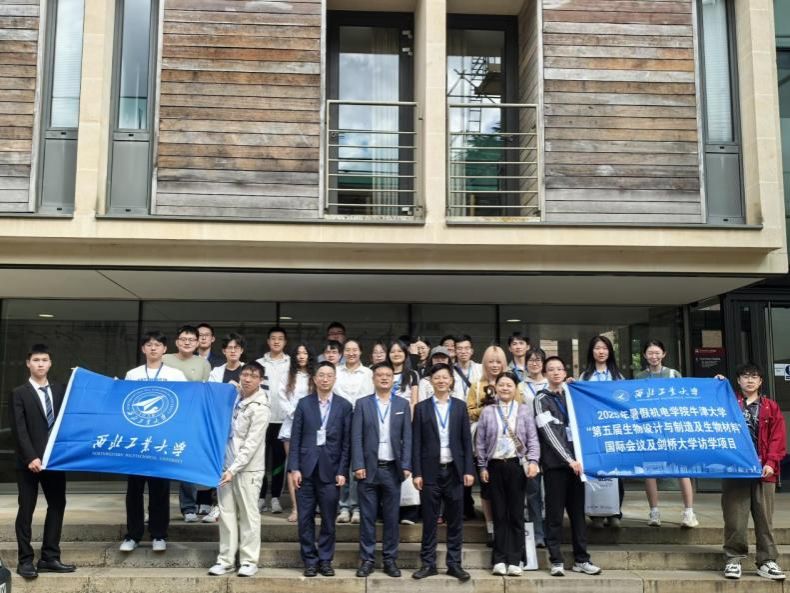
During their study tour in the UK, students from the School of Electronics and Information visited several prestigious universities, including the University of Oxford, the University of Manchester, Lancaster University, and the University of Liverpool, actively participating in a series of academic reports and specialized lectures. From the northern cradle of the Industrial Revolution to the academic sanctuaries of the south, and from the profound weight of ancient Roman ruins to the innovative energy of modern cities, the UK’s rich cultural tapestry and deep historical context left a profound and valuable impression on the students, significantly broadening their international perspectives and enhancing their cross-cultural understanding and humanistic qualities.
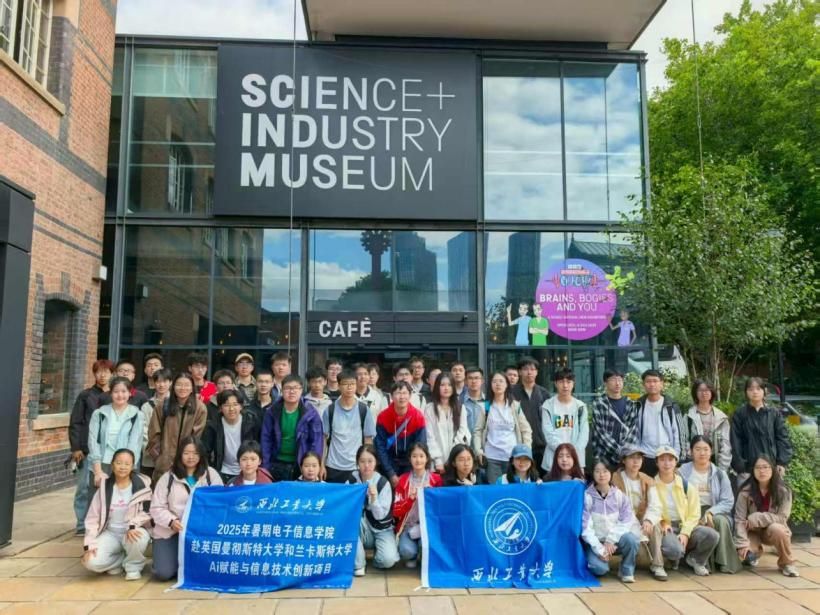
Students from the School of Cybersecurity set foot on British and headed to the world-renowned University of Cambridge, embarking on an international exchange journey that integrated knowledge acquisition, cultural immersion, and industrial exploration. During the two-week study program, the students broadened their global perspectives through cross-cultural exchanges, deepened their academic literacy by engaging with cutting-edge research, and connected with future possibilities via industrial practices. This experience has accumulated valuable insights for cultivating cybersecurity talents with a global vision and innovative capabilities.
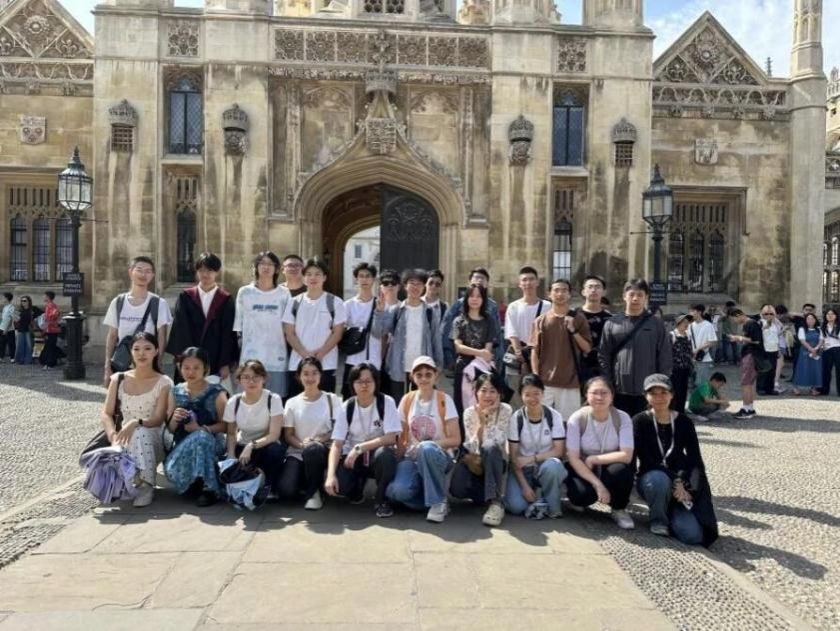
The School of Mathematics and Statistics selected 10 outstanding student representatives for an academic exploration program at the University of Cambridge in the UK. Centered around the theme “AI for Science: Mathematics Driving the Future”, the program provided a high-level platform for students to deeply engage with Cambridge’s academic environment and British culture through various activities, including lectures by renowned scholars, laboratory visits, and exchanges with prestigious universities.
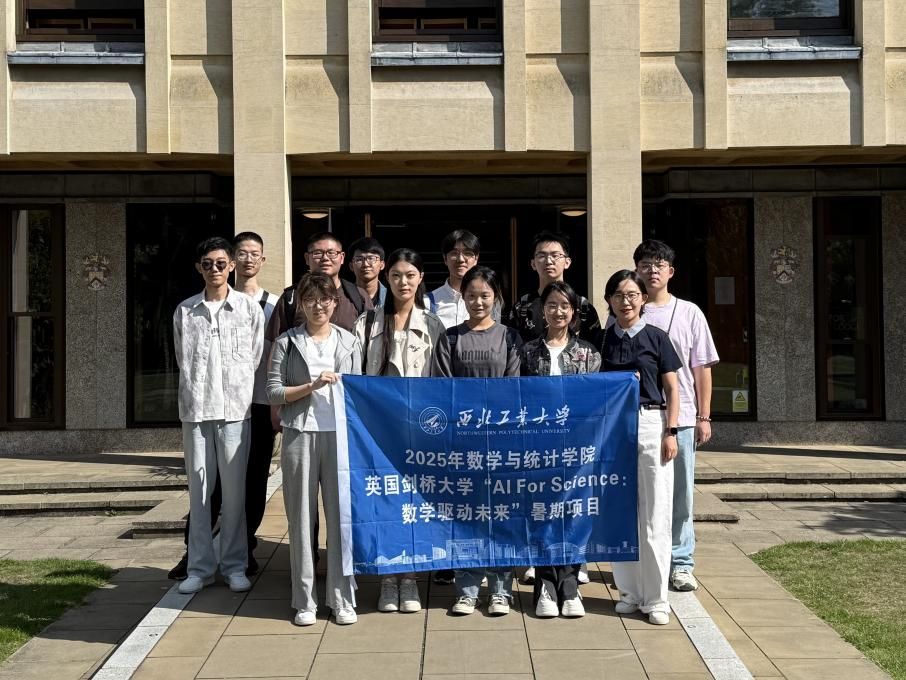
A delegation of 27 faculty members and students from the School of Astronautics visited the University of Cambridge and the University of Leicester in the UK for academic exchanges with professors and exploration of specialized fields. They also experienced the profound contemplative atmosphere of landmarks like Windsor Castle and Chatsworth House, which sparked deep reflection on the integration of science and humanities. Through specialized coursework, aerospace science popularization exchanges, and the deepening of university-level strategic partnerships, the program significantly broadened the students' international perspectives, enhanced their understanding of professional domains, and elevated the university’s global influence.
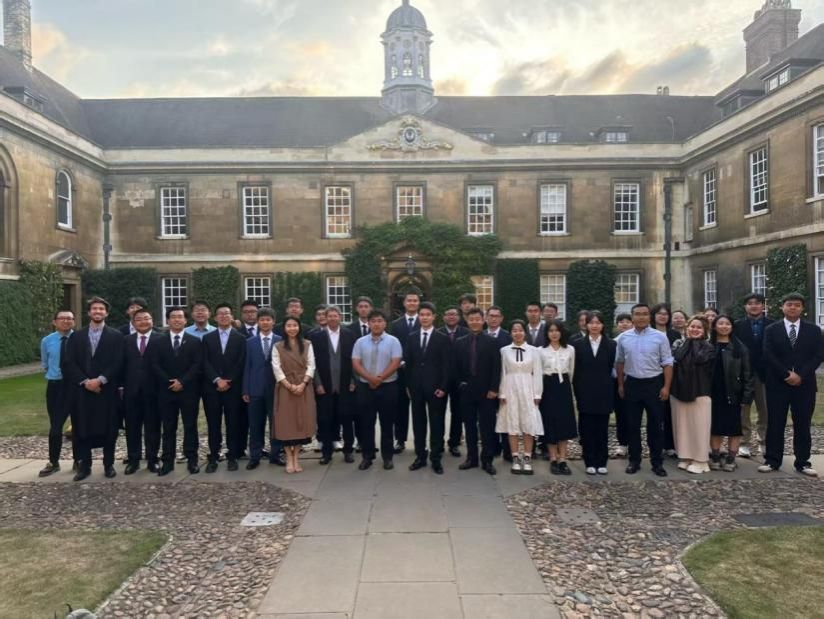
A delegation of outstanding students from the Queen Mary University of London Engineering School, participated in an intensive program at the Technical University of Munich, Germany, delving into courses such as “Industrial Embodied Intelligence” and “AI-Enabled Cyber-Physical Systems”. Immersed in a diverse and open international academic environment, the students were exposed to a multitude of academic concepts and research perspectives, which significantly broadened their intellectual horizons and enhanced their interdisciplinary understanding and international research capabilities.
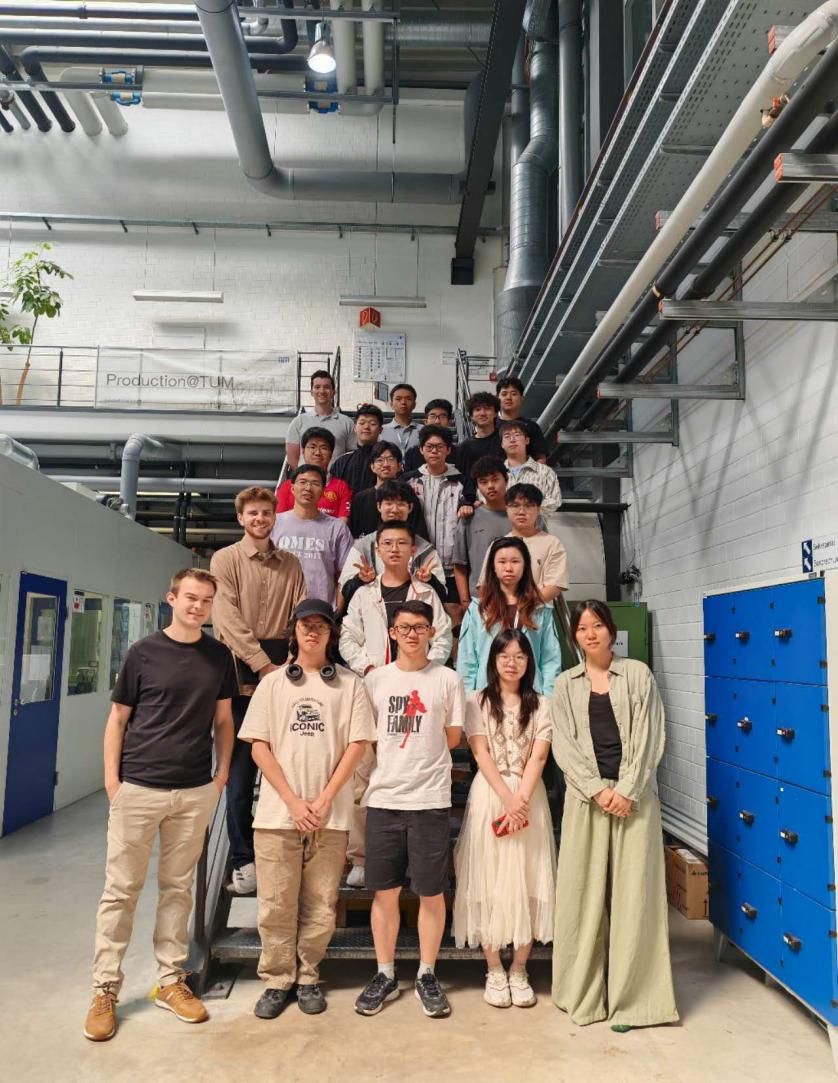
Students from School of Power and Energy embarked on an academic journey through the UK, traversing a route from Edinburgh to York, Cambridge, and finally London. This path took them from the pastoral landscapes of Scotland to the bustling urban centers of England, all while engaging in deep study of cutting-edge global energy technologies, such as “Net Zero Emissions”. They conducted in-depth visits to energy companies and research institutions in York and Cambridge, focusing on frontier technologies in areas like hydrogen energy and power grids. Complementing their technical focus, explorations of cultural landmarks such as the British Museum broadened their humanistic perspectives. The itinerary masterfully integrated professional practice with cross-cultural thinking, effectively enhancing the students’ professional competence and international awareness within the context of global energy issues.
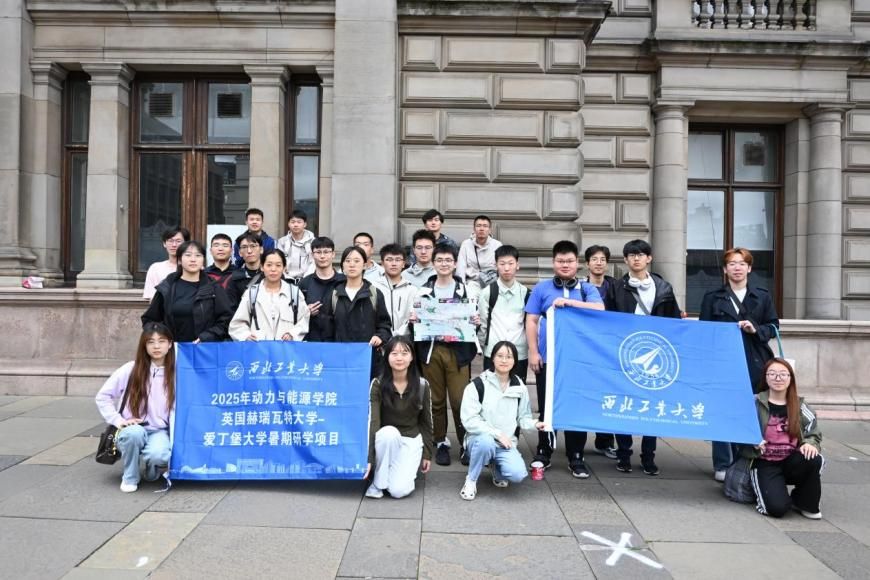
At the prestigious, world top-100 ranked University of Leeds in the UK, the Undergraduate Student Affairs Department of the NPU Committee of the CPC sponsored 28 outstanding students from diverse schools to participate in cutting-edge multidisciplinary courses and thematic field investigations alongside nearly a thousand peers from across the globe. Grouped according to their specific study tracks, the students visited practical sites in various professional fields, engaging in on-site teaching and project work that was closely aligned with the curriculum. This dual-interactive “classroom-to-field” learning model powerfully facilitated the deep integration of theoretical knowledge and practical skills, thereby consolidating and expanding the students’ academic perspectives and professional competencies.
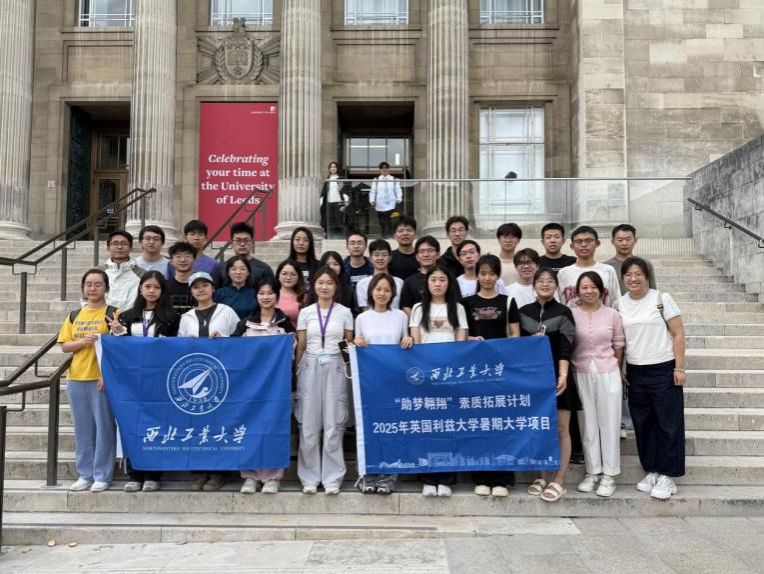
A delegation of faculty and students from the School of Automation recently conducted an academic exchange and industry research tour in Germany. At RWTH Aachen University, the delegation systematically studied core courses in the fields of artificial intelligence and automation, gaining an in-depth experience of the teaching and research environment in German higher education. Through visits to multiple renowned companies and technology parks, the students conducted on-site investigations into the practical implementation of Industry 4.0 and specific applications of smart manufacturing technologies in Europe. This experience significantly enhanced the students’ understanding of current developments in these cutting-edge fields and strengthened their cross-cultural academic and practical competencies.
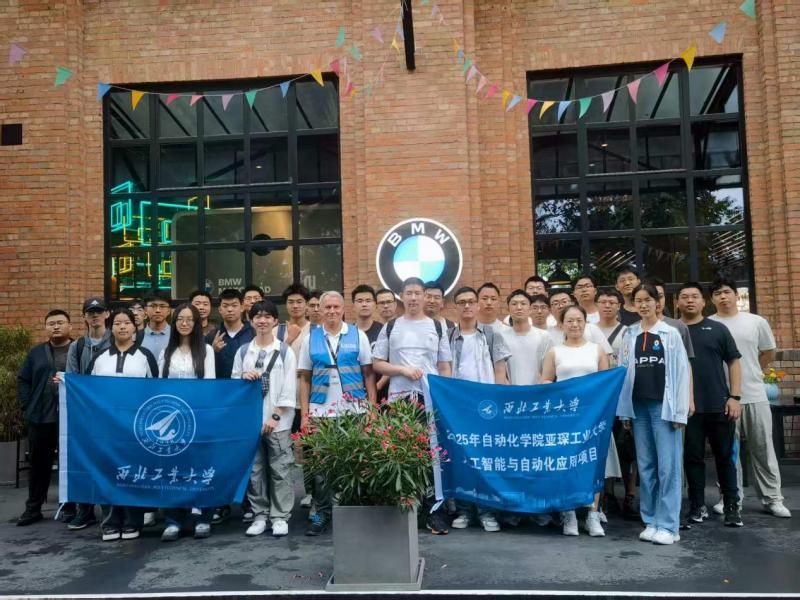
In Italy, students from the School of Chemistry and Chemical Engineering engaged in a systematic study of green energy and low-carbon technology at Sapienza University of Rome, significantly deepening their interdisciplinary understanding. Through intensive learning and seminars on cutting-edge topics—ranging from the principles of Raman spectroscopy and its application in material analysis to the synthesis of energy storage nanomaterials from secondary raw materials—the students substantially enhanced their professional competencies.
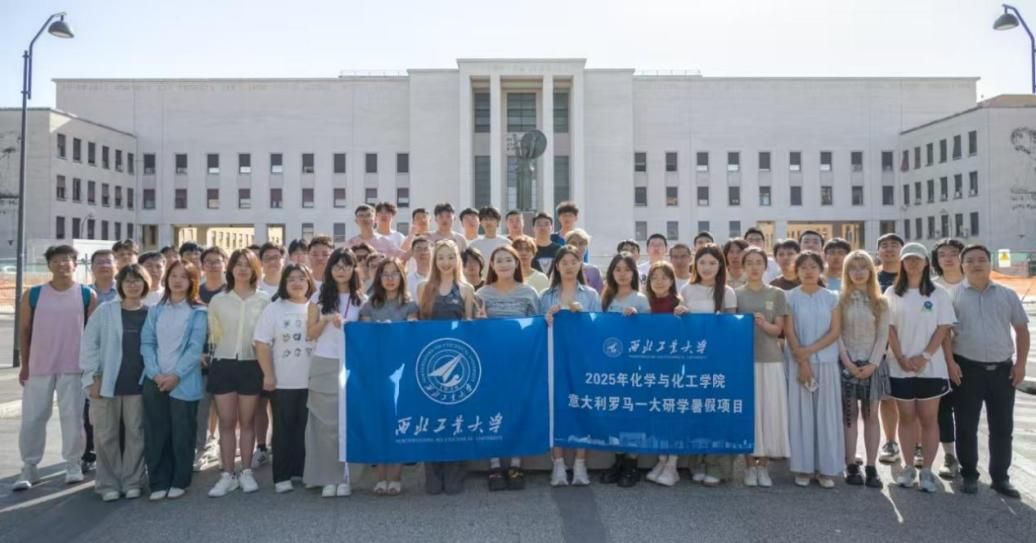
A delegation of faculty and students from the School of Foreign Studies traveled to Ireland to participate in a summer study program at University College Dublin. The program, focused on enhancing academic English proficiency, effectively strengthened students’ ability to use academic language and their international communication skills through specialized workshops, academic lectures, and systematic coursework. This experience has laid a solid foundation for their future engagement in high-level academic research or in-depth international exchanges.
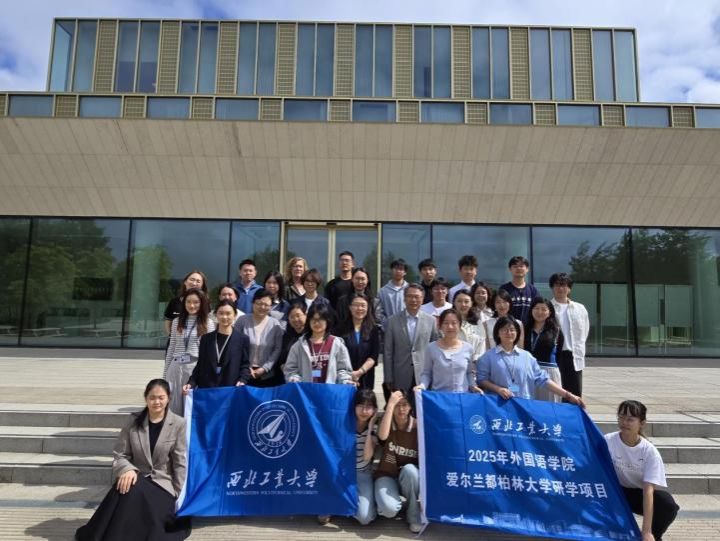
A delegation of faculty and students from the Institute of Flexible Electronics recently conducted an academic and cultural study tour at the Autonomous University of Madrid in Spain. The students visited key research facilities, including the nanoBIG laboratory and the Center for Micro-Analysis of Materials (CMAM), gaining hands-on understanding of advanced instrumentation and its applications in cutting-edge fields like flexible electronics. Complementing the technical focus, visits to local museums and historic buildings provided an immersive experience of Spain’s rich historical heritage and cultural context. The program effectively broadened the participants’ international perspectives and significantly enhanced their professional knowledge and cross-cultural communication skills.
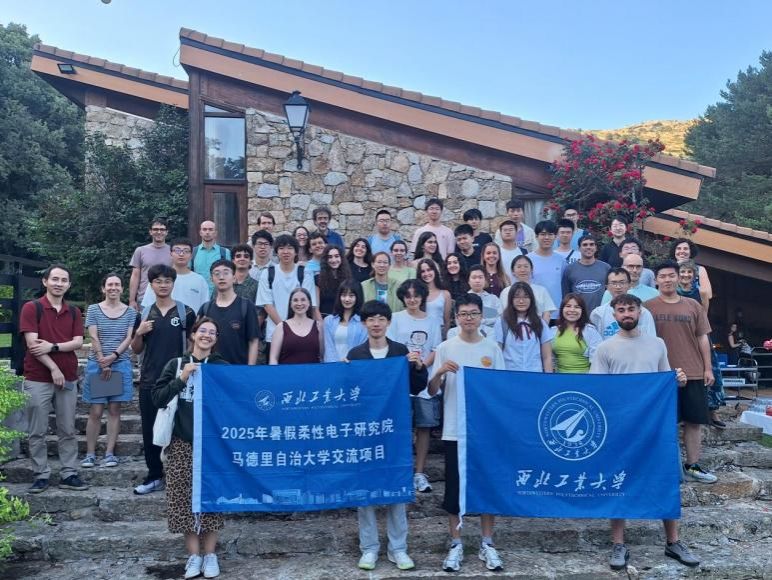
A delegation from the School of Management participated in an academic exchange program at the Henley Business School, University of Reading, UK. Faculty and students immersed themselves in the distinctive teaching style of British classrooms, actively engaging in cutting-edge coursework and group collaborative practices, while also conducting in-depth exchanges with local academic institutions and enterprises. Through a series of academic activities and cultural visits, the students not only broadened their professional horizons but also deepened their first-hand understanding of British socio-cultural and academic ecosystems, resulting in a comprehensive enhancement of their cross-cultural learning and communication abilities.
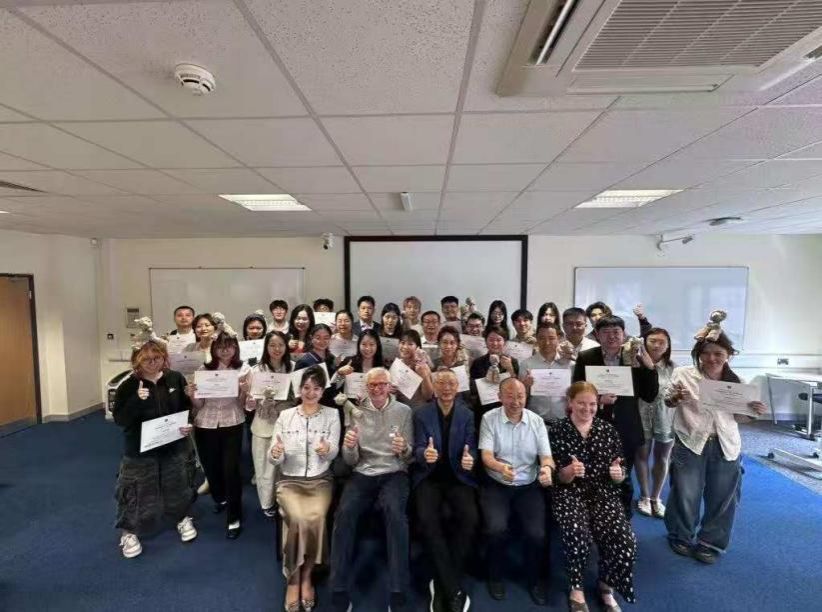
On the occasion of the 80th anniversary of the United Nations, 31 members of the “Zhujian Class” (the sword-forging Elite Program) and 13 members of the University Student Art Ensemble embarked on a 12-day deep-learning research project focused on UN Youth Leadership Development in Switzerland and Italy. Centering on global governance, AI for Good, and culture and arts, the delegation deeply decoded the workings of the UN, exchanged ideas on cutting-edge technology, and explored the essence of European civilization. This experience significantly enhanced the participants’ global competence and youth leadership, demonstrating on the world stage the broad-mindedness and exceptional initiative of Chinese youth in the new era to contribute to a shared future for humanity.
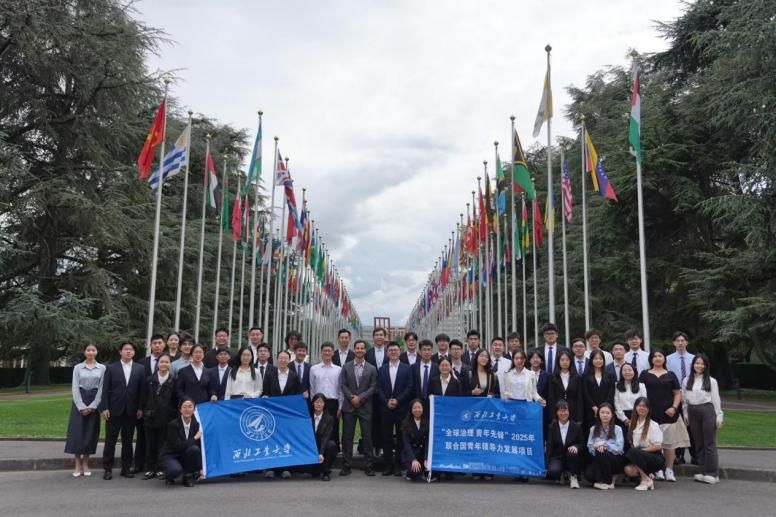
To cultivate “Chief Engineer-Type” talents with international perspectives and materials science expertise, 25 undergraduates from the School of Materials Science and Engineering participated in a program at the University of West Attica in Greece, where they systematically studied cutting-edge courses such as Introduction to Greek Civilization, 3D Modeling and Printing, and Mechatronics. Through an innovative training model that integrated theoretical instruction with project-based practice, the students significantly enhanced their interdisciplinary application skills and cross-cultural communication competencies. This initiative not only deepened international academic exchanges but also further strengthened their overall qualities and global competitiveness.
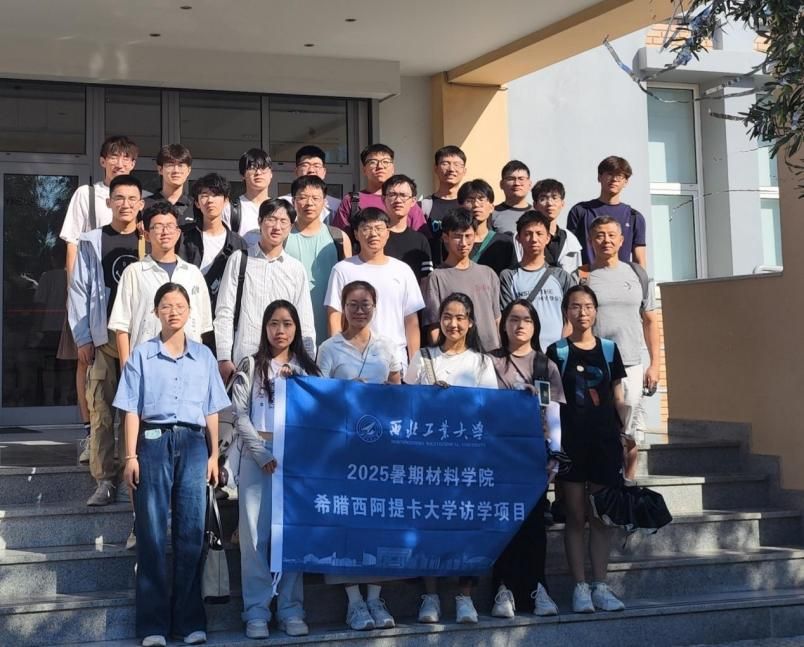
In Spain, students from the School of Mechanics and Transportation Engineering visited the Universitat Politècnica de Catalunya and Toulouse Business School, achieving substantial outcomes through classroom learning, group collaboration, and cultural immersion. The curriculum, centered on Python and R programming, featured a systematic design that helped students build a solid foundation in programming and data analysis. By working with practical case studies, the instruction guided them step by step—from basic syntax to advanced applications—enabling them to thoroughly master these essential skills.
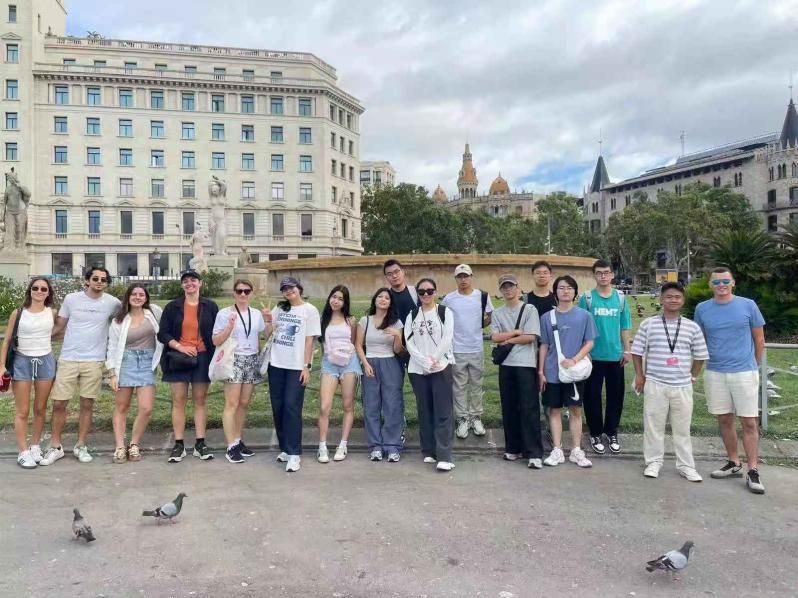
The National Science Park, in collaboration with the School of Civil Aviation, organized a student delegation to participate in a summer innovation and entrepreneurship exchange program in Paris, France. Through activities including innovation seminars, incubator visits, Sino-French youth entrepreneurship forums, and cross-cultural immersion, students gained profound insights and firsthand experience into France’s innovation ecosystem, incubator development models, and socio-cultural dynamics.
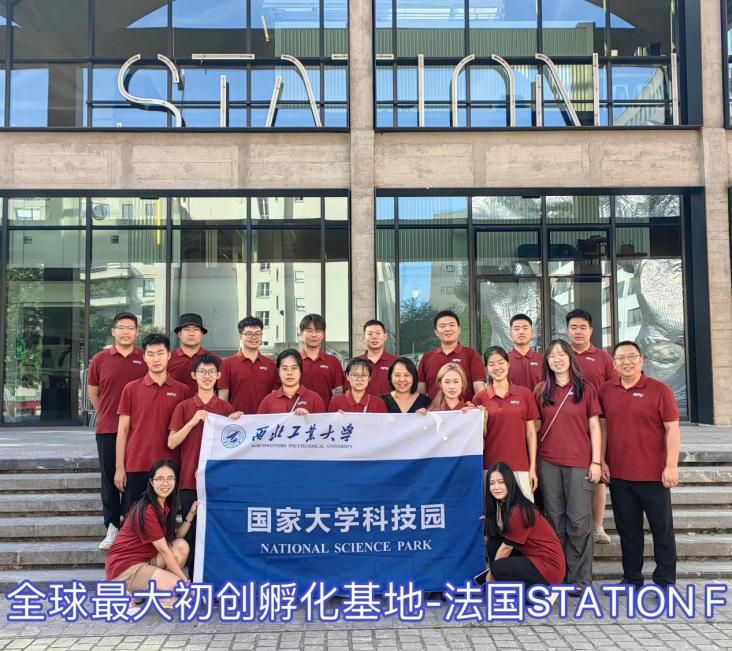
During an exchange visit to the Hungarian University of Sports Sciences(HUSS), the NPU men’s volleyball team played two friendly matches against their host team, securing victories with scores of 3-1 and 3-0 respectively, demonstrating tenacious fighting spirit and exceptional teamwork. Meanwhile, the fencing team engaged in high-intensity specialized training and held in-depth exchanges with local coaches, absorbing advanced training methodologies and practical techniques, which significantly enhanced their competitive performance. This visit not only showcased the outstanding quality of our students but also deepened sports cooperation between the two institutions, injecting new vitality into people-to-people exchanges between China and Hungary.
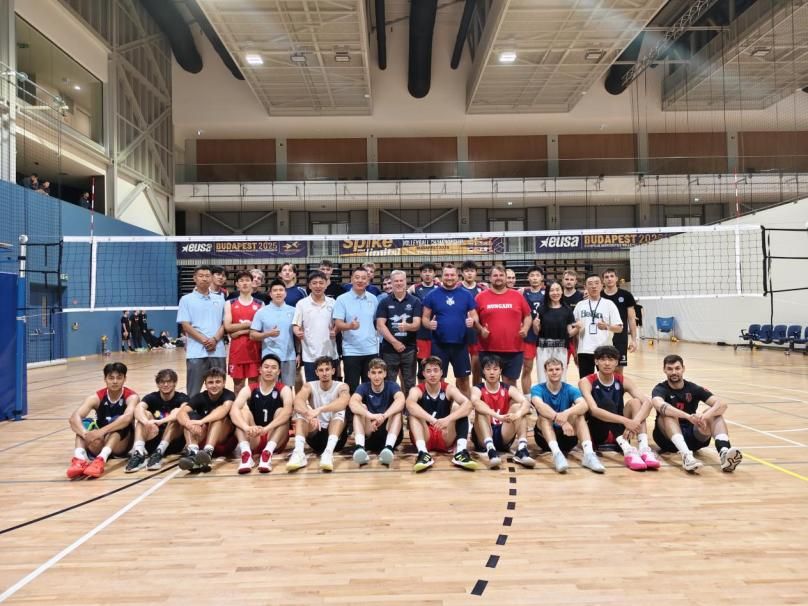
In Oceania
During their program in Australia, students from the Honors College attended sessions at the University of Melbourne, where they learned methods to address challenges arising from the integration of AI into engineering and created their own designs using 3D printing technology. At Monash University, they studied the principles and applications of various remote sensing technologies in analyzing soil moisture content. The visit to an Australian Football League (AFL) facility featured close interaction with players and coaches from the North Melbourne Kangaroos Team, allowing students to experience Aussie Rules football firsthand and gain a deeper understanding of Australia’s distinctive sports culture.
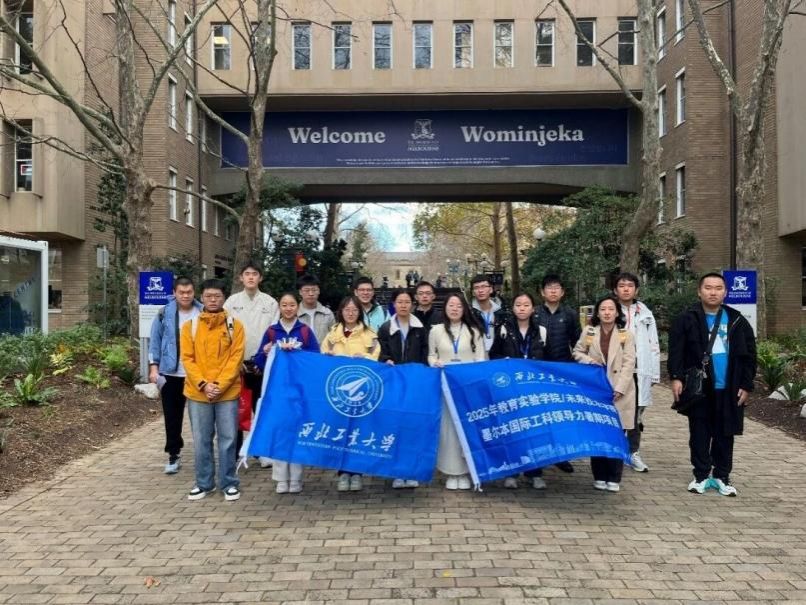
The School of Aeronautics leveraged the leading expertise in artificial intelligence of renowned Australian universities, such as the University of Sydney, to deliver a series of thematic courses that allowed students to deeply explore the latest developments in cutting-edge AI technologies. The program also included field visits to companies, helping students understand real-world industry applications and strengthen their practical awareness of engineering and management.
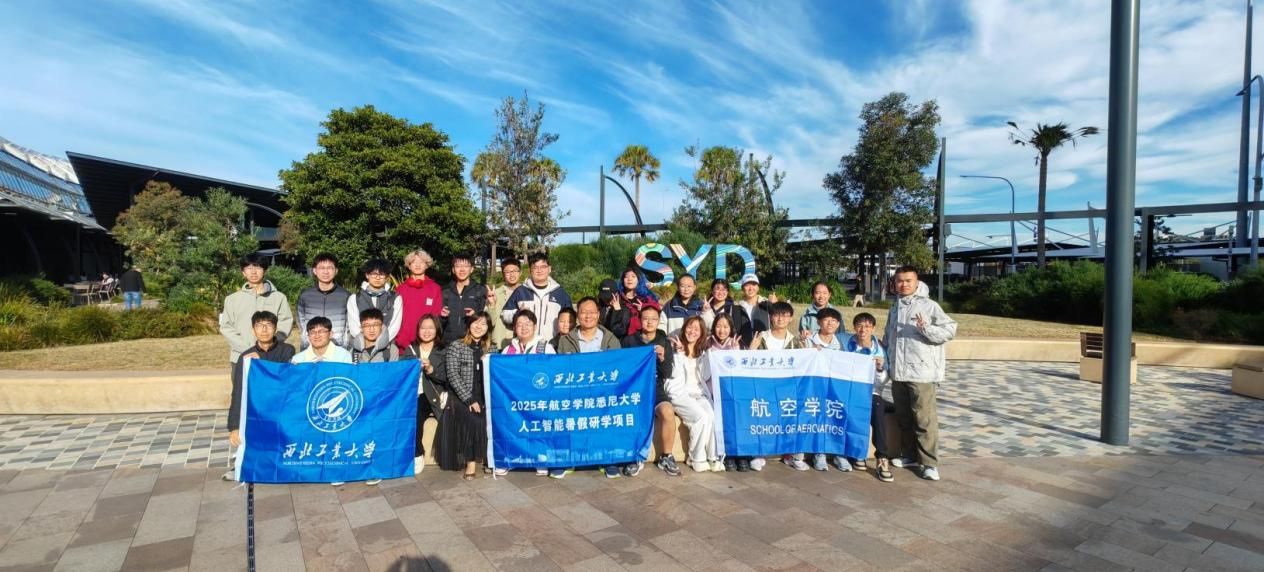
In Asia & Africa
The 9th International Competition of the Military Technical College (ICMTC) successfully concluded in Cairo, Egypt, from July 26 to 31, 2025. Two teams from our university competed fiercely over two days in the harsh conditions of the Sahara Desert, which featured gale-force winds and temperatures exceeding 50°C (122°F). Demonstrating exceptional skill and resilience, one team successfully defended its title to reclaim the championship in the multi-rotor UAV project, while the other secured the bronze medal in the fixed-wing UAV project.
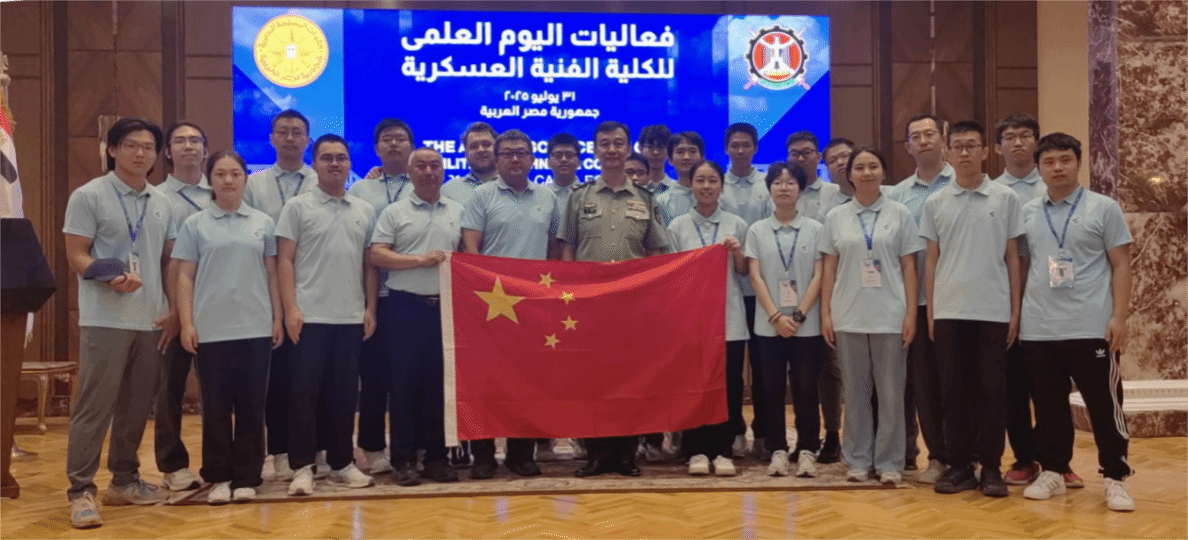
At the invitation of the United Nations Institute for Training and Research (UNITAR), 16 students from the “Zhujian Class” (the sword-forging Elite Program) – a pioneering initiative under the “Chief Engineer-Type” Talent Development Program – participated in the 2025 Annual Meeting of the Academic Council on the United Nations System (ACUNS) in Nairobi, Kenya. Focusing on the theme of “Environmental Multilateralism and Human Development”, they engaged in discussions with leading global scholars on critical issues such as climate change and biodiversity conservation. This experience provided the students with a profound understanding of the responsibilities and opportunities for young scientific talents on the global stage in the new era.
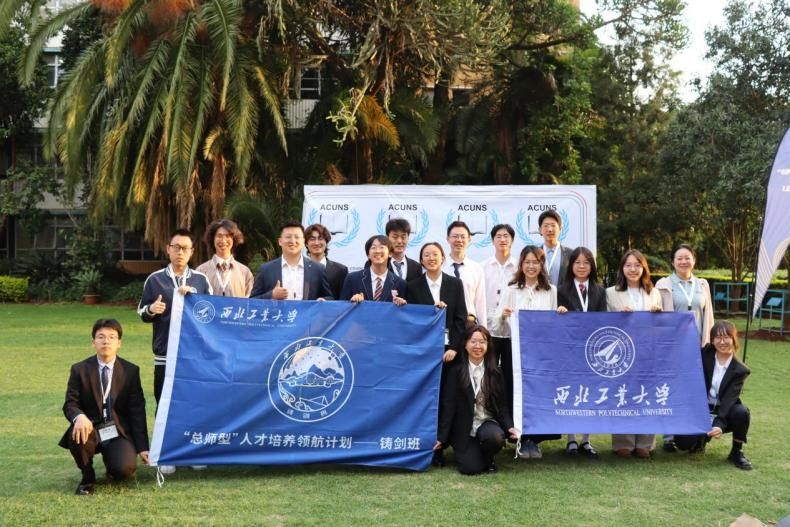
Commissioned by Shaanxi Provincial People’s Association for Friendship with Foreign Countries, our university selected outstanding faculty and student representatives to participate in the 8th International Youth Summer Camp in Gyeongsangbuk-do, South Korea. This engagement has deepened the friendly cooperation between Shaanxi Province and Gyeongsangbuk-do, providing a significant practical opportunity for our university to advance internationalization initiatives and broaden global exchange platforms for teachers and students. It further contributes to nurturing a new generation of the “Chief Engineer-Type” talents who possess both deep national pride and a broad global vision.
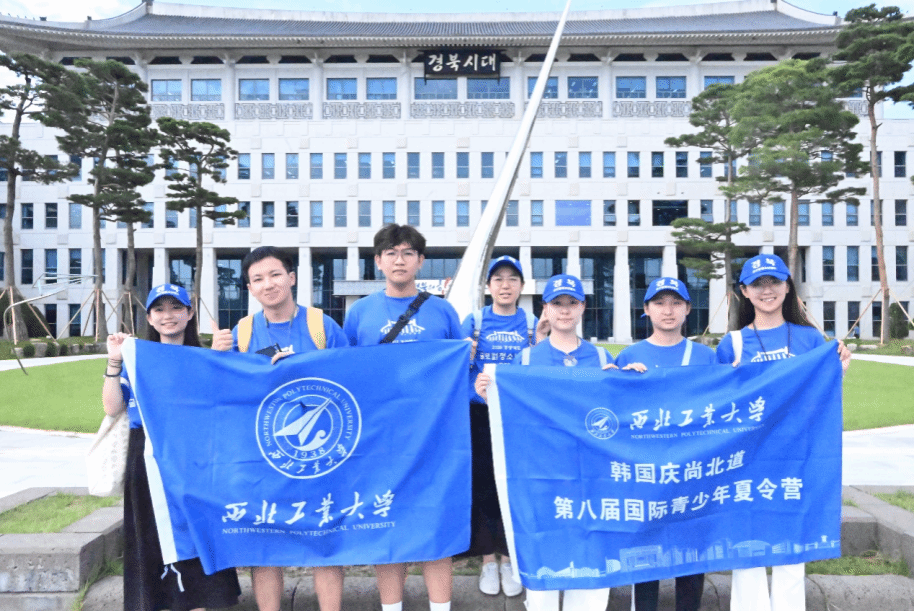
The School of Software organized an academic exchange program for students at the National University of Singapore, Nanyang Technological University, and Singapore Management University. Students immersed themselves in the academic environment and innovative culture of these world-class institutions, enhancing their professional competencies and international literacy through teamwork, project-based learning, and cross-cultural communication. Through in-depth interactions with faculty and students from multiple countries, they further broadened their global perspectives and strengthened their future-oriented competitiveness and confidence in personal development.
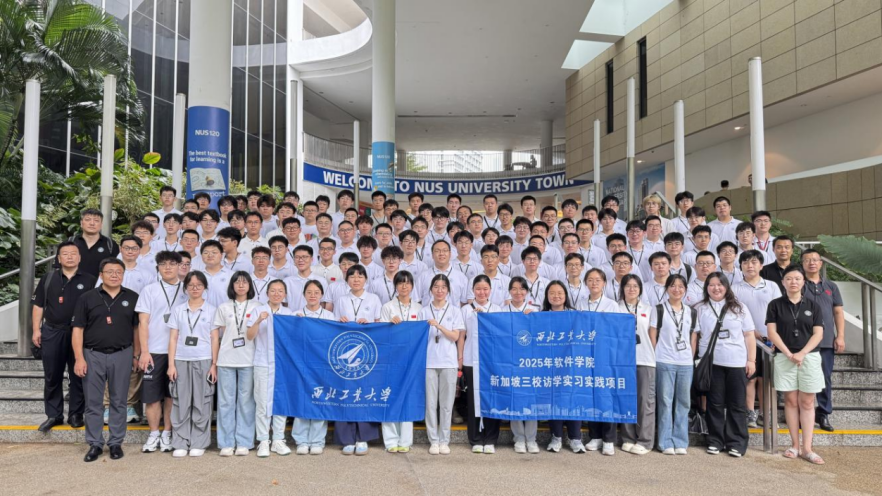
The School of Marine Science and Technology organized an exchange program on “Artificial Intelligence and Robotics” at the University of Hong Kong and the University of Macau. Through activities including expert lectures, group seminars, and hands-on Q&A sessions, students gained in-depth knowledge of AI and robotics concepts and their evolution, analyzed the risks and ethical dilemmas associated with misuse of AI technologies, and explored applications of AI and robotics, thereby building a structured understanding of cutting-edge technologies. After intensive discussion and meticulous preparation, the students successfully delivered thematic presentations and engaged in Q&A sessions, ultimately demonstrating outstanding academic achievements during their study in Hong Kong and Macao.
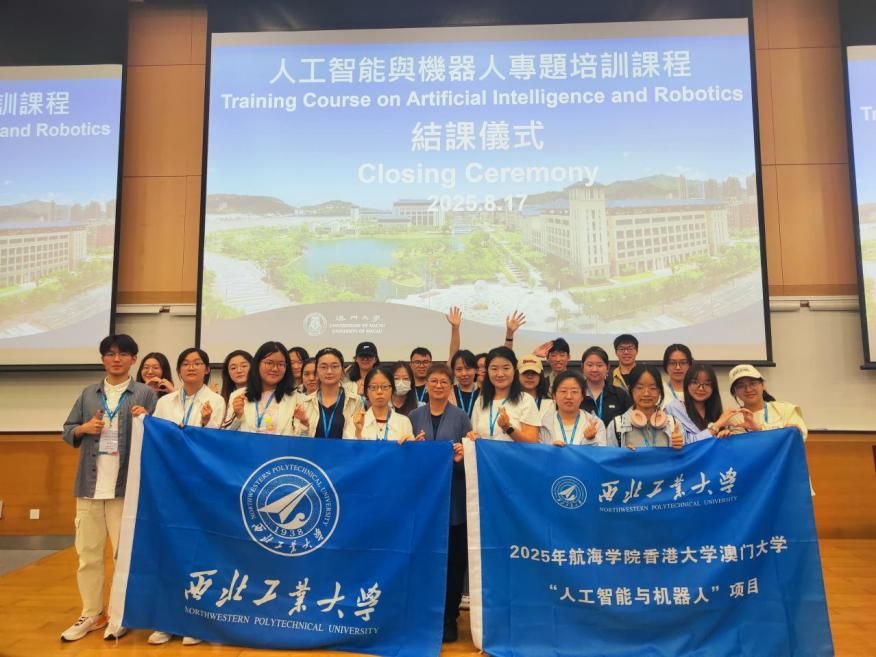
A student delegation from the School of Physical Science and Technology visited the Chinese University of Hong Kong for an academic and cultural exchange. During the program, they attended a series of specialized lectures covering fields such as astrophysics, condensed matter physics, and computational biophysics, gaining systematic exposure to cutting-edge developments in physics, earth, and environmental sciences. Through visits to distinctive venues including the Jockey Club Museum of Climate Change and local fishing culture villages, the students gained multidimensional insights into Hong Kong's historical, artistic, cultural, and natural characteristics, effectively broadening their academic perspectives and enhancing their cross-cultural understanding and regional awareness.
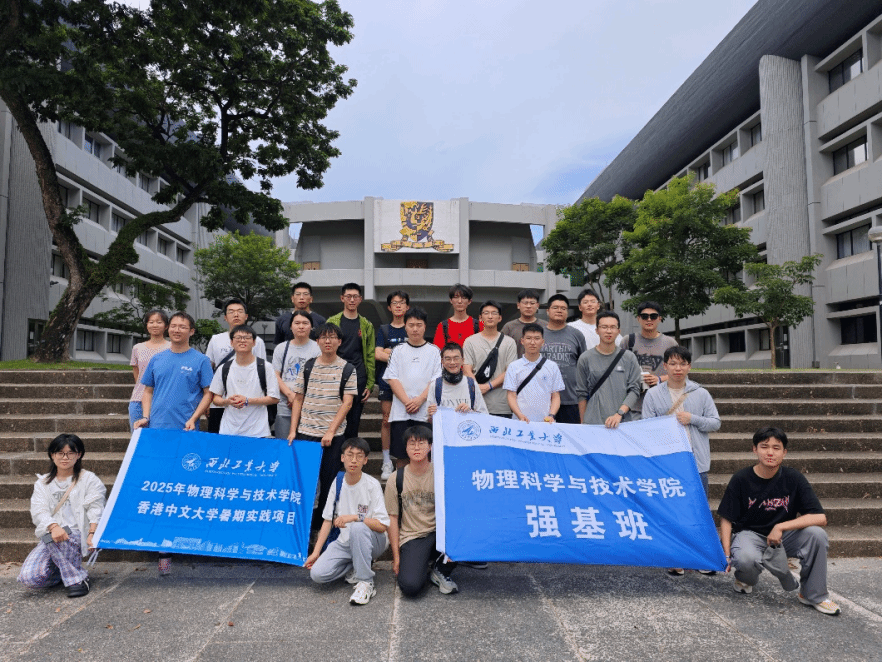
A delegation of students and faculty from the School of Civil Aviation visited Hong Kong for an exchange program. During the trip, they toured renowned universities such as The Hong Kong Polytechnic University and The University of Hong Kong, as well as key industry institutions including the Government Flying Service and Hong Kong Aircraft Engineering Company Limited. Focusing on cutting-edge fields such as civil airport operation management and the innovative development of smart civil aviation, the delegation engaged in in-depth discussions and practical exchanges with relevant organizations. This experience significantly enhanced the students’ professional understanding and practical perspective, while laying a solid foundation for advancing inter-university cooperation and industry-academia collaboration in talent development.
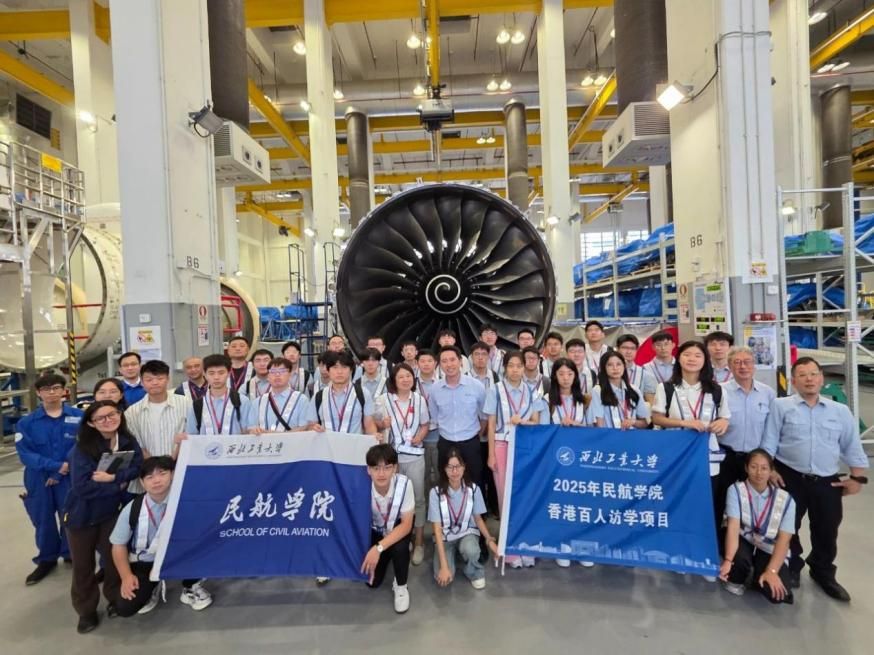
The Office of International Cooperation and the School of Astronautics jointly organized a student study tour to Japan. The itinerary included academic exchanges with prestigious universities such as the University of Tokyo and Nagoya University; visits to scientific venues like the Miraikan Science Museum and an aviation museum; and stops at cultural landmarks including Mount Fuji and Atami Castle. This immersive experience provided students with a comprehensive understanding of Japan’s strengths in scientific research, technological development, and cultural heritage, laying a solid foundation for cultivating them into “Chief Engineer-Type” talents with a global perspective.
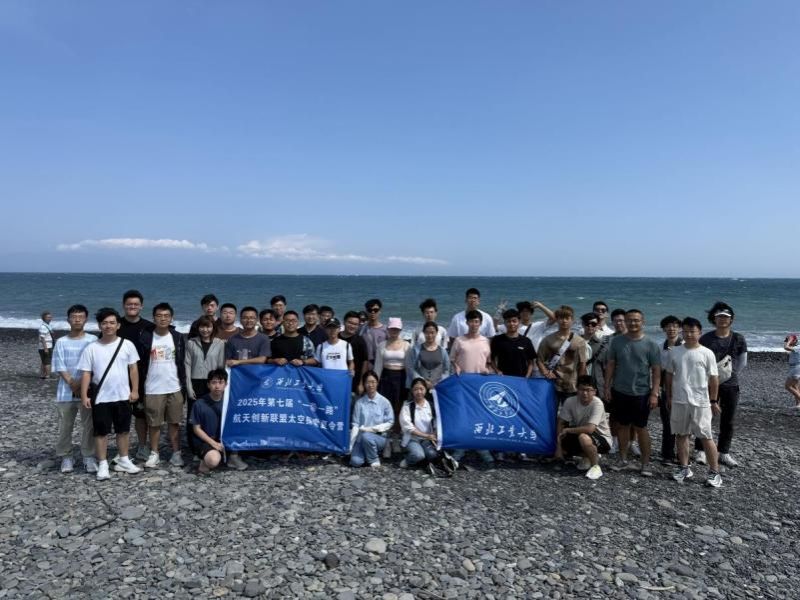
A delegation of students and faculty from the School of Materials Science and Engineering visited Kyoto University in Japan for an academic and cultural study program. The delegation conducted on-site visits to local leading enterprises, high-level research institutions, and significant cultural heritage sites. Through a series of in-depth exchanges and immersive experiences, the students gained profound insights into Japan's technological advancements and innovation ecosystem in the field of materials science. They also witnessed firsthand the critical role of materials technology in driving industrial upgrading and promoting sustainable social development, thereby further strengthening their professional commitment and global perspective.
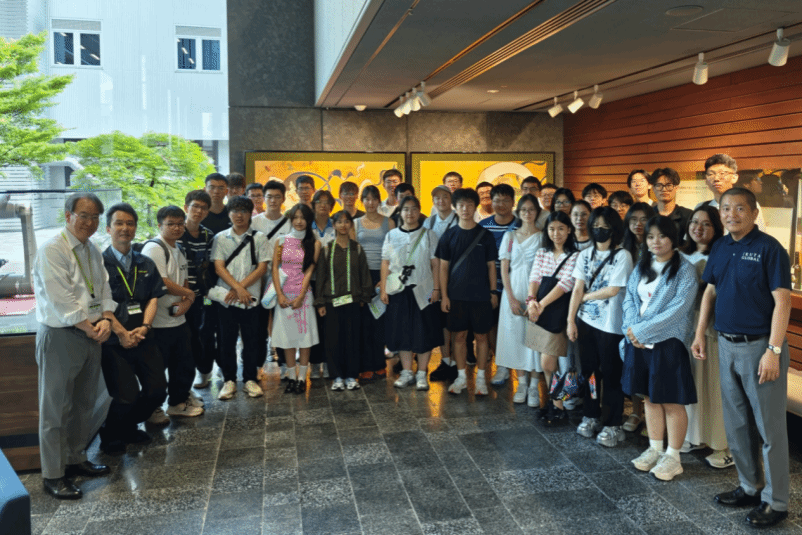
A joint delegation of faculty and students from the School of Computer Science, the School of Electronics and Information, and School of Energy and Power Engineering visited Kazakhstan. The delegation conducted academic exchanges with Al-Farabi Kazakh National University and NPU Kazakhstan Branch Campus, holding specialized seminars on cutting-edge artificial intelligence technologies. While deepening inter-university collaboration, the delegation also engaged in cultural activities to experience local society, effectively fostering students’ growth in both technological innovation and cross-cultural understanding.
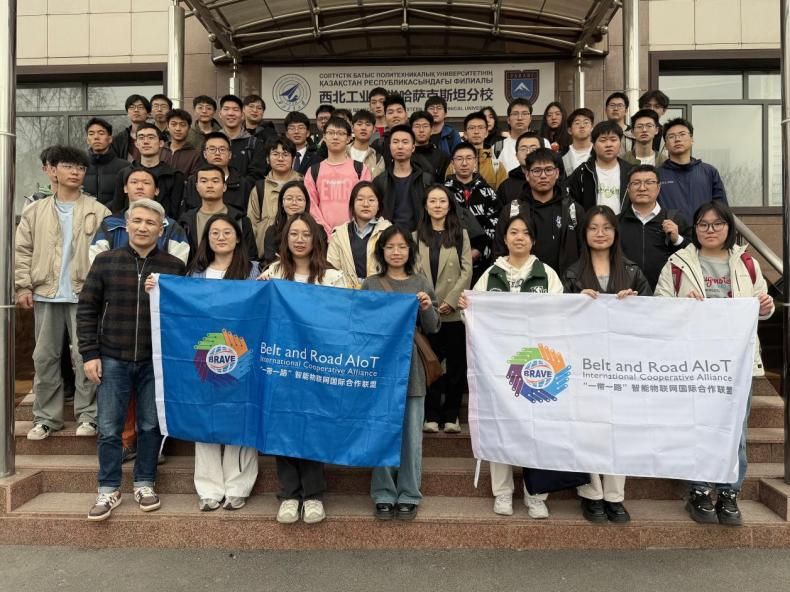
A summer camp and academic exchange program was organized by the Faculty of Life Sciences and Medicine for undergraduate students at the Faculty of Health Sciences and the Institute of Chinese Medical Sciences of the University of Macau. The program provided students with direct exposure to cutting-edge fields such as pharmaceutical research and development, and a systematic understanding of research paradigms in areas like precision cancer medicine. Through this immersive experience, students gained a deeper appreciation for the responsibilities of scientific researchers and the mission of cultural inheritance in medicine. The camp not only broadened their global perspective and interdisciplinary thinking but also helped establish an international academic network, resulting in valuable knowledge accumulation and lasting friendships.
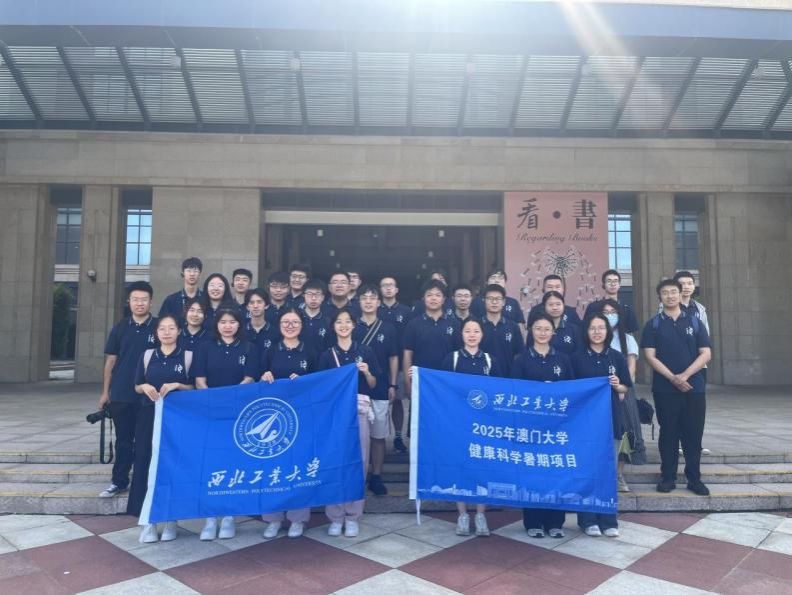
NPU actively promotes its internationalization strategy through its “Sending-Out” program, expanding its global partnership network and accumulating valuable experience in cross-border academic mobility. This initiative has established a replicable and scalable model for international exchange. Insights and outcomes from these overseas activities are systematically integrated back into the teaching and research systems, contributing to curriculum enhancement and research advancement, thereby continuously expanding NPU’s global educational influence. Looking ahead, the university will further refine its international exchange mechanisms to ensure that every undergraduate student has at least one overseas learning opportunity. This commitment lays a solid foundation for cultivating the “Chief Engineer-Type” talents with strategic vision and holistic management capabilities, contributing directly to the achievement of NPU’s near-term “127” development goals and its long-term vision of building world-class universities and disciplines.
(Text: Liang Kexin, Chen Siwei; Review: Chen Jun, Kong jie; Translators:Li Yiwen, Mei Leyun)
